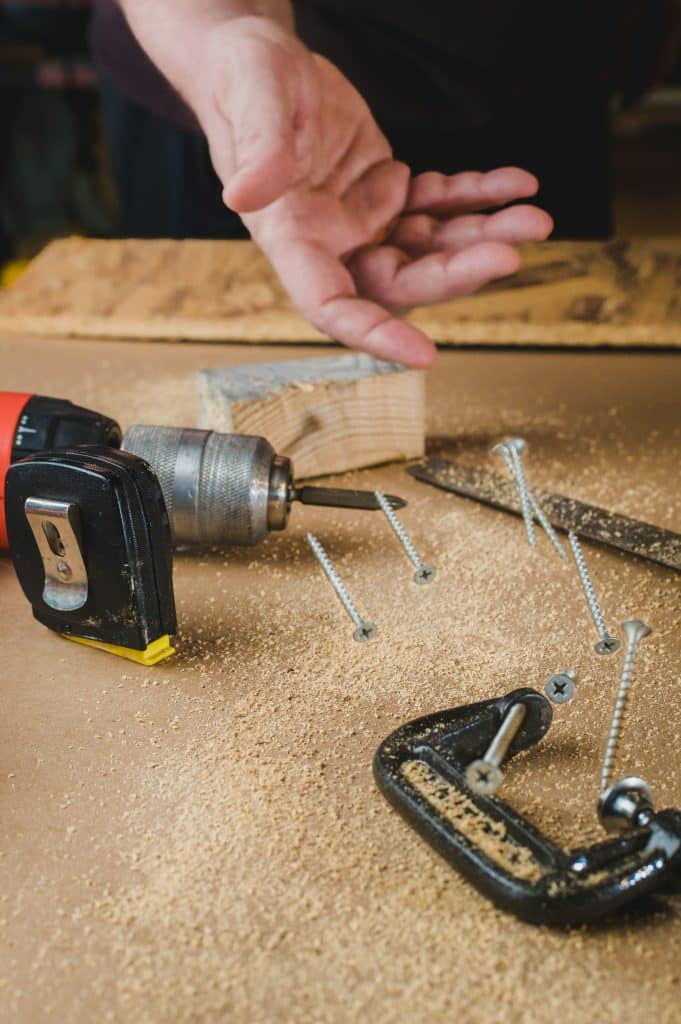When it comes to fastening materials together, there are a variety of options available. However, one of the most popular and versatile types of screws is the hex head screw. With its six-sided head and deep drive, hex head screws provide a tight hold and can withstand more torque than flat or rounded head screws. They are commonly used in a variety of applications, from woodworking to automotive manufacturing.
As a trusted wholesale distributor for over 65 years, Fastening Specialists is your go-to source for all your fastening needs. We offer a wide range of hex head screws in various sizes, materials, and coatings to meet your specific requirements. Whether you need a few screws for a DIY project or bulk quantities for industrial applications, we have you covered. With our extensive product knowledge and expertise, we can help you find the right screws for your project and provide valuable advice on best use-cases.
Basics of Hex Head Screws
Hex head screws are a type of threaded fastener that is widely used in various applications. They are known for their hexagonal heads, which are designed to be used with a wrench or socket to provide higher torque than other types of screws. Hex head screws are available in a wide range of sizes and materials, making them suitable for use in different applications.
Defining Hex Head
Hex head screws are composed of three main parts: the head, the shank, and the threads. The head is the hexagonal part of the screw that is used to turn the screw with a wrench or socket. The shank is the smooth, unthreaded part of the screw that extends from the head to the threads. The threads are the ridges that spiral around the shank of the screw and are used to grip the material being fastened.
Common Materials
Hex head screws are available in a variety of materials, including steel, stainless steel, brass, and titanium. Each material has its own unique properties, making it suitable for different applications. For example, steel is a strong and durable material that is commonly used in construction, while stainless steel is resistant to corrosion and is often used in marine applications.
Thread Variations
Hex head screws are available in both fully threaded and partially threaded variations. Fully threaded screws have threads that extend from the head to the tip of the screw, while partially threaded screws have threads that only extend partway down the shank. Partially threaded screws are often used in applications where the screw needs to be secured in place while allowing the unthreaded portion to provide a smooth surface for the material being fastened.
As a trusted wholesale distributor for over 65 years, Fastening Specialists is the go-to source for all your fastening needs. With a wide range of sizes, applications, features, designs, materials, coatings, and SKU names, we know that fastenings can be overwhelming. Serving a long list of industries, you can trust THE specialists for the best in product value, insight, code expertise, and order fulfillment. Our team provides advice and best use-cases, but always check with local building codes and engineers for correct usage instructions.
The team at Fastening Specialists provides advice and best use-cases, but always check with local building codes and engineers for correct usage instructions.
Material and Coating Options
When selecting hex head screws, you need to consider the material and coating options available to ensure you choose the right fastening solution for your application. Here are some of the materials and coatings available:
Stainless Steel Grades
Stainless steel is a popular material for hex head screws due to its corrosion-resistant properties. The most common stainless steel grades used for hex head screws are 18-8 and 316 stainless steel. 18-8 stainless steel is a general-purpose stainless steel that is suitable for most applications. 316 stainless steel, on the other hand, is a marine-grade stainless steel that is ideal for use in harsh environments, such as saltwater.
Coating Types
Coatings can be applied to hex head screws to provide additional protection against corrosion and wear. Some of the most popular coating types for hex head screws include black oxide, zinc plated, and hot-dipped galvanized. Black oxide provides a black finish and is ideal for decorative applications. Zinc plated hex head screws are coated with a layer of zinc to protect against rust and corrosion. Hot-dipped galvanized hex head screws are coated with a layer of zinc to provide even greater protection against corrosion.
Alternative Materials
If stainless steel is not the right material for your application, there are other materials to choose from, such as plastic, bronze, and brass. Plastic hex head screws are lightweight and corrosion-resistant, making them ideal for use in electrical applications. Bronze and brass hex head screws are strong and durable, making them ideal for use in marine applications.
Fastening Specialists is a trusted wholesale distributor of hex head screws and other fastening solutions. With over 65 years of experience in the industry, we are specialists in this field and can help you find the right fastening solution for your application. Our team of experts can provide you with valuable insight and code expertise to ensure you get the best product value and order fulfillment. Remember to always check with local building codes and engineers for correct usage instructions.
The team at Fastening Specialists provides advice and best use-cases, but always check with local building codes and engineers for correct usage instructions.
Mechanical Properties
Hex head screws are designed to provide a secure fastening solution for a variety of applications. Understanding the mechanical properties of hex head screws is important in selecting the right fastener for your project. This section covers the strength grades, hardness and heat treatment, and tensile, yield, and proof loads of hex head screws.
Strength Grades
Hex head screws come in various strength grades, including grade 5, grade 8, and grade 9. Grade 5 and grade 8 are commonly made from low-strength steel, while grade 9 is made from medium carbon alloy steel that is quenched and tempered. Class 8.8 steel and class 10.9 steel are also commonly used for hex head screws.
Hardness and Heat Treatment
The hardness of a hex head screw is determined by its core hardness and surface hardness. The core hardness is the hardness of the steel at the center of the screw, while the surface hardness is the hardness of the steel at the surface of the screw. Heat treatment is used to increase the hardness of the steel.
Tensile, Yield, and Proof Loads
The tensile strength of a hex head screw is the maximum amount of stress that the screw can withstand before breaking. The yield strength is the amount of stress that the screw can withstand before it starts to deform permanently. The proof load is the maximum amount of stress that the screw can withstand without permanent deformation.
At Fastening Specialists, we have been a trusted wholesale distributor of fasteners for over 65 years. We are specialists in this field and offer a wide range of fasteners to meet your needs. With our expertise, you can trust us to provide you with the best in product value, insight, code expertise, and order fulfillment. The expert gives you so much more value. Serving a long list of industries, you can trust THE specialists for all your fastening needs.
The team at Fastening Specialists provides advice and best use-cases, but always check with local building codes and engineers for correct usage instructions.
Design and Application
Dimensions and Sizes
Hex head screws come in a variety of dimensions and sizes to meet different application needs. The product diameter ranges from 1/4 inch to 4 inches, with a thread length of up to 1-1/2 inches. The width across flats and corners, head height, and body diameter vary depending on the size of the screw.
Corrosion Resistance
Corrosion resistance is an important consideration when selecting hex head screws. Materials such as bronze, brass, and plastic hex head cap screws offer excellent resistance to corrosion. Additionally, left-hand hex head cap screws and mil. spec hex head cap screws are available for specialized applications that require non-loosening hold.
Specialty Screws
Specialty hex head screws are available for unique applications. For example, hex head cap screw assortments are available to meet the needs of different industries. These assortments include screws in various sizes and materials to meet different application requirements.
Fastening Specialists
When it comes to fastenings, you need a trusted wholesale distributor that can provide you with the best products and advice. Fastening Specialists is a trusted name in the industry, with over 65 years of experience as a wholesale distributor. We are specialists in this field, and we offer a wide range of products to meet your needs.
The expert gives you so much more value. With so many sizes, applications, features, designs, materials, coatings, and SKU names, we know that fastenings can be overwhelming. Serving a long list of industries, you can trust THE specialists for the best in product value, insight, code expertise, and order fulfillment.
The team at Fastening Specialists provides advice and best use-cases, but always check with local building codes and engineers for correct usage instructions.
Installation and Tools
Appropriate Tools
Proper installation of hex head screws requires the use of appropriate tools. You will need a socket wrench or a hex key wrench that matches the size of the screw head. It is important to use the correct size of the tool to avoid slipping and causing injury or damaging the screw. Fastening Specialists provides a wide range of socket wrenches and hex key wrenches that are designed to fit hex head screws of various sizes.
Installation Techniques
Before installing hex head screws, it is important to ensure that the hole is drilled to the correct size. The size of the hole should be slightly smaller than the diameter of the screw shank to ensure a tight fit. You can use a drill bit that matches the size of the screw shank to drill the hole.
Once the hole is drilled, remove any debris or sawdust using a vacuum or brush. This will ensure a clean and secure fit for the screw. Finally, you can insert the hex head screw into the hole. Use a socket wrench or hex key wrench to tighten the screw securely.
Fastening Specialists has been a trusted wholesale distributor for over 65 years, specializing in fastenings. With so many sizes, applications, features, designs, materials, coatings, and SKU names, we know that fastenings can be overwhelming. Serving a long list of industries, you can trust THE specialists for the best in product value, insight, code expertise, and order fulfillment.
Remember to always check with local building codes and engineers for correct usage instructions. The team at Fastening Specialists provides advice and best use-cases to help you get the most out of your fastening needs.

